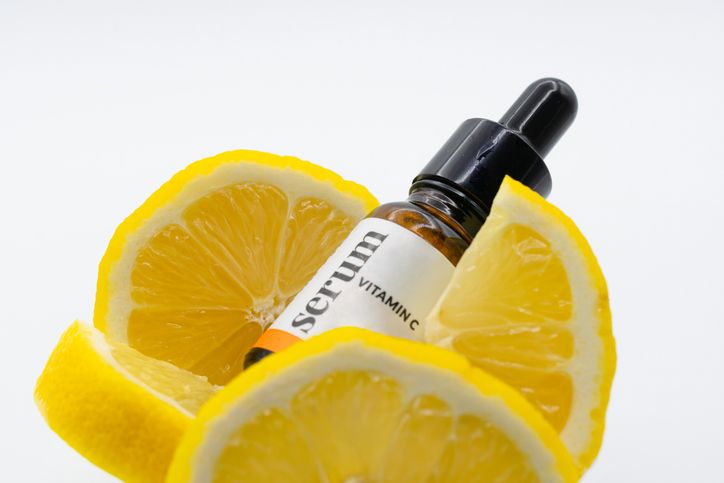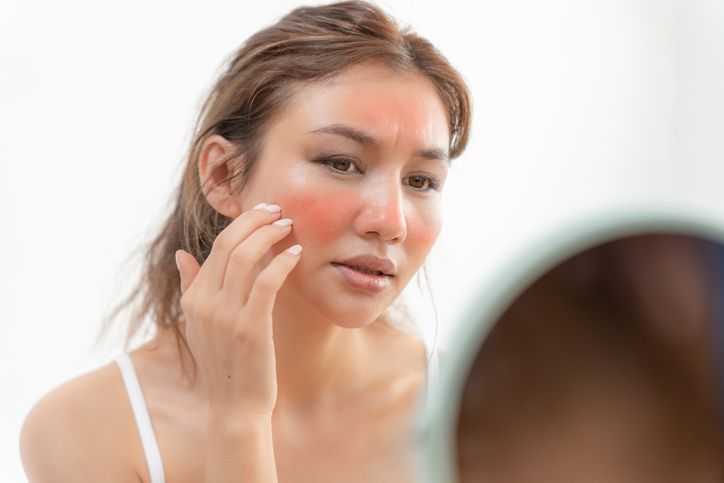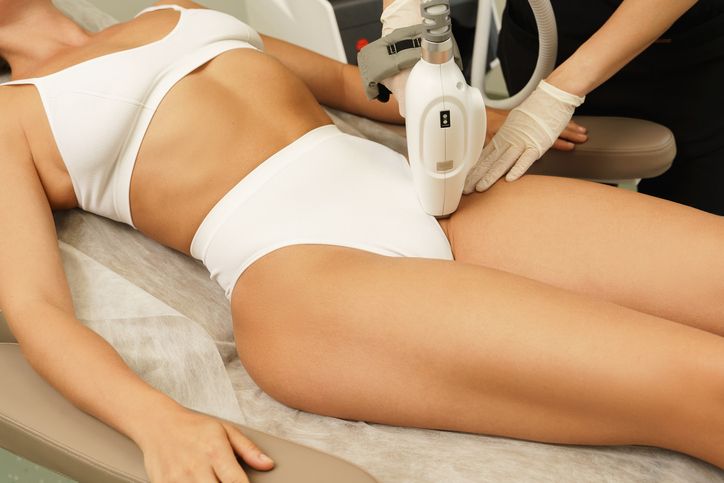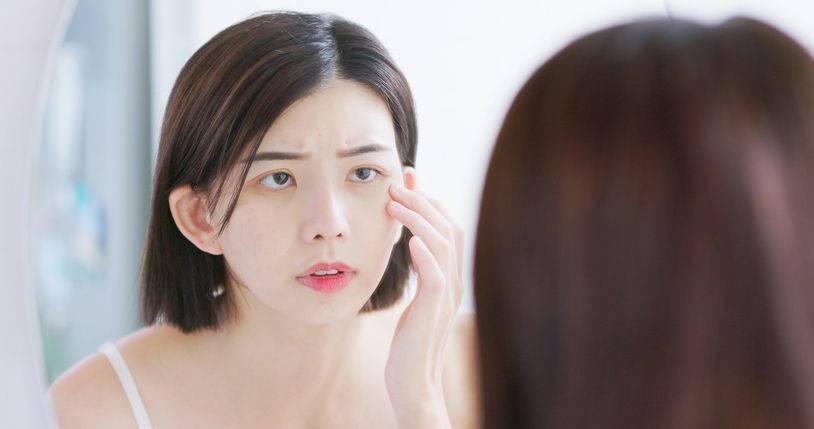- Home
- Trend
- Weight Loss Strategies
- Acne Tips
- Hair Health Information
- Blemish Removal Tips
- Acne Scar Removal Tips
- Muscle Building Techniques
- Intimate Care Tips
- Postpartum Intimate Care
- Eye Bags Wiki
- Tips for Face Slimming
- Secret of Permanent Hair Removal
- Breast Enlargement Tips
- Cure to Snoring
- Marionette Lines
- Skin-Tightening Secrets

免費體驗
PicoCure Pigmentation Removal Treatment
1 Minute Self-Registration
Date should not be before minimal date
Are you on a quest for glowing, youthful skin? Look no further than the skin brightening powerhouse - vitamin C! Vitamin C isn't just for warding off colds—it's an essential ingredient in skincare, revered for its ability to combat signs of aging and illuminating the complexion. Whether you're dealing with dull skin, dark spots, or fine lines, incorporating a vitamin C serum into your skincare routine might just be the game-changer you need. Let's explore how this wonder vitamin works its magic on your skin and pinpoint the 8 best serums to rejuvenate and protect your skin this year!
1
How does Vitamin C Work on the Skin?

Vitamin C is not merely beneficial for your immune system; it's a cornerstone of effective skin care, particularly in serums designed to combat aging and skin damage. As an antioxidant, Vitamin C neutralizes free radicals, which are unstable molecules that damage skin cells and accelerate aging. By defending against these radicals, Vitamin C not only wards off premature aging signs like wrinkles and sagging but also enhances the production of collagen. Collagen is a vital protein that maintains skin's elasticity and firmness.
Moreover, Vitamin C interrupts the pathway of melanin production in the skin. This reduction in melanin helps to fade dark spots and even out skin tone. The anti-inflammatory properties of Vitamin C also make it beneficial for reducing redness and swelling, particularly in conditions like acne.
2
Topical Vitamin C Benefits for Skin Concerns

Brighten Skin Tone
Vitamin C inhibits tyrosinase, an enzyme that plays a crucial role in melanin production. By reducing melanin production, Vitamin C helps to even out skin tone and reduce hyperpigmentation, leading to a brighter and more radiant complexion.
Erase Dark Spots
Vitamin C enhances the skin's natural regeneration process, which accelerates the replacement of damaged cells with healthy new ones. This cell turnover is essential for fading sunspots, age spots, and post-acne marks, making the skin appear more uniform and clear.
Fade Acne Scars
Vitamin C's ability to increase collagen production is particularly effective in the repair and prevention of acne scars. Collagen fills in the indentations left by severe acne, plumping the skin and minimizing the depth of acne scars, which helps in achieving a smoother overall skin texture.
Smoothen Skin Texture
Apart from its collagen-boosting abilities, Vitamin C functions as a gentle exfoliant. It facilitates the shedding of dead skin cells from the surface layer, which enhances the skin's natural renewal process and reveals smoother and healthier skin underneath.
Prevent UV Damage
The antioxidant properties of Vitamin C provide a crucial shield against damage from UVA and UVB rays, which are known to cause photoaging. This protective barrier helps prevent the breakdown of collagen and the formation of fine lines and wrinkles that are often accelerated by sun exposure.
Diminish Fine Lines and Saggy Skin
By stimulating collagen synthesis, Vitamin C not only diminishes the appearance of fine lines and wrinkles but also enhances the firmness of the skin. Increased collagen production supports skin structure, reducing sagging and maintaining a youthful and resilient complexion.
3
Best Vitamin C Serums in 2025

High-End Splurge: Skinceuticals C E Ferulic
Texture & Scent: A lightweight, non-greasy formula that is unscented, ideal for those who are sensitive to fragrances. Key Ingredients: 15% L-ascorbic acid for superior antioxidant protection, 1% vitamin E to nourish and protect the skin, and 0.5% ferulic acid to enhance the effects of vitamin C and E. Unique Traits: Endorsed by board-certified dermatologists, this serum provides unmatched environmental protection. Pros: Delivers enhanced protection against environmental damage, reduces fine lines, and improves skin firmness. Cons: The premium price tag may not be suitable for all budgets.
Sunscreen Combo: Supergoop! Daily Dose Vitamin C + SPF40 Serum
Texture & Scent: Lightweight and fast-absorbing serum with a subtle refreshing fragrance. Key Ingredients: Vitamin C to brighten the skin, and broad-spectrum SPF 40 to shield against UVA/UVB rays. Unique Traits: A two-in-one formula that combines daily sun protection with the brightening benefits of vitamin C. Pros: Simplifies skincare routine by combining sun protection with antioxidant treatment. Cons: May not be moisturizing enough for very dry skin types without an additional moisturizer.
Drugstore Hero: Cerave Skin Renewing Vitamin C Serum
Texture & Scent: Smooth, lotion-like texture that is fragrance-free, making it perfect for sensitive noses. Key Ingredients: 10% pure vitamin C for effective antioxidative action, ceramides to help restore the skin barrier, and hyaluronic acid for hydration. Unique Traits: Developed with dermatologists, this serum is designed to improve skin texture and radiance. Pros: Accessible and effective, with a formulation that supports skin barrier integrity. Cons: Some users may prefer a higher concentration of vitamin C for more dramatic results.
Budget-Friendly Option: The Inkey List 15% Vitamin C and EGF Brightening Serum
Texture & Scent: Serum has a lightweight, fluid texture with no added fragrance. Key Ingredients: 15% ascorbic acid for potent brightening, and EGF to aid in skin regeneration. Unique Traits: Affordable yet effective, this serum combines cutting-edge ingredients for a rejuvenated complexion. Pros: Offers significant skin brightening and rejuvenation at an affordable price. Cons: Higher concentrations of active ingredients may not be suitable for extremely sensitive skin.
Sensitive Skin Savior: La Roche-Posay Pure Vitamin C Face Serum
Texture & Scent: Silky, lightweight formula that is fragrance-free to minimize skin irritation. Key Ingredients: 10% pure vitamin C (L-ascorbic acid), neurosensine to soothe irritation, and salicylic acid for gentle exfoliation. Unique Traits: Specifically formulated for sensitive skin with a focus on stability and efficacy. Pros: Highly effective on sensitive skin without causing redness or irritation. Cons: The price point is slightly higher than some other sensitive skin options.
Natural Power: Yes To Grapefruit Daily Brightening Serum
Texture & Scent: Refreshing, light serum with a natural grapefruit scent. Key Ingredients: Grapefruit extract rich in vitamin C, ascorbic acid, and fruit acids for exfoliation. Unique Traits: Utilizes natural sources of vitamin C for those looking for a more holistic skincare approach. Pros: Enhances skin brightness with natural ingredients. Cons: May not be as potent as synthetic formulations in terms of immediate visible results.
Luxury Treatment: TATCHA Violet-C Brightening Serum
Texture & Scent: Luxurious and creamy texture with a subtle, soothing fragrance. Key Ingredients: 20% vitamin C and Japanese angelica root for deep brightening, along with a complex of Japanese botanicals. Unique Traits: Combines traditional Japanese botanicals with high levels of vitamin C for a unique treatment experience. Pros: Provides deep hydration alongside noticeable brightening and smoothing of skin. Cons: The luxury price may be a barrier for some.
All-Around Favorite: BeautyStat Universal C Skin Refiner
Texture & Scent: Creamy texture that blends smoothly into the skin, fragrance-free. Key Ingredients: 20% pure vitamin C (L-ascorbic acid), squalane for hydration, and tartaric acid to stabilize the formulation. Unique Traits: Boasts a high concentration of stabilized vitamin C for maximum efficacy across all skin types. Pros: Effective at reducing signs of aging, brightening skin, and improving overall texture. Cons: Its potency might not be suitable for the most sensitive skin types.
4
Picking the Best Vitamin C Serum for Yourself

Think About Your Skin Type
When choosing a vitamin C serum, it’s crucial to consider your unique skin type to ensure you get the most benefit without irritation: - Sensitive skin: Opt for serums with a lower concentration of vitamin C. Look for products specifically labeled as suitable for sensitive skin. - Oily skin: Can generally handle higher concentrations of vitamin C, which can help regulate oil production and refine skin texture. - Dry skin: Should look for serums that contain hydrating ingredients alongside vitamin C, such as hyaluronic acid, to help maintain moisture balance. - Combination skin: Might benefit from a balanced formula that addresses oiliness in the T-zone while also providing hydration to dry areas.
Percentage of Vitamin C Concentration in Serums
The effectiveness of a vitamin C serum is greatly influenced by the concentration of vitamin C it contains. Beginners or those with sensitive skin should start with a lower concentration (10-15%) and gradually work their way up.
Vitamin C Serum Formulation
Look for serums that contain L-ascorbic acid, known for its potent and effective antioxidant properties. Combining vitamin C with vitamin E and ferulic acid can stabilize the formula and enhance its antioxidant benefits, protecting the skin against environmental damage.

免費體驗
PicoCure Pigmentation Removal Treatment
1 Minute Self-Registration
Date should not be before minimal date
5
Potential Side Effects of Vitamin C

While vitamin C serums are generally safe, they can cause side effects, particularly when you first begin using them: - Irritation: Redness, itching, or stinging can occur, especially in individuals with sensitive skin. - Dryness: Some formulas may dry out the skin, necessitating the use of additional hydrating products. - Sensitivity to sun: Vitamin C can make your skin more sensitive to the sun, making the use of sunscreen even more crucial.
People who might want to avoid vitamin C serums
- Those with extremely sensitive skin that reacts poorly even to low concentrations. - Individuals currently experiencing severe skin conditions like eczema or rosacea, unless advised by a dermatologist. - People allergic to any of the ingredients in the vitamin C serum.
6
Tips on Using Vitamin C Serum Effectively and Safely

Correct Order in Your Skin Care Routine
Apply vitamin C serum after cleansing and toning but before heavier serums and moisturizers. This helps the vitamin C penetrate effectively. If using multiple serums, apply them based on their consistency—start with the thinnest and work up to the thickest.
Mixing Vitamin C with Other Skin Care Ingredients:
- Retinol: Vitamin C in the morning and retinol at night is recommended, as mixing them can cause sensitivity due to their potent natures. - Vitamin E: This can be mixed with vitamin C as it enhances its stability and efficacy. - AHA/BHA: Avoid using vitamin C simultaneously with high concentrations of acids; if you do, use vitamin C in the morning and acids at night. - Niacinamide: Mixing niacinamide with vitamin C was once thought to be a bad idea, but recent studies show they can be used together without reducing efficacy. However, to avoid potential redness and irritation, consider applying them at different times of the day.
Frequency of Use
Start with applying a vitamin C serum a few times a week and monitor your skin’s response. If your skin tolerates the serum well, you can increase usage to daily, ensuring you maximize benefits while minimizing irritation.
- All You Need to Know About Retinol + 10 Best Retinol Creams and Serums for Fine Lines, Acne, Dull Skin and More Skin Care Concerns!
- Unveiling Your Glow: A Complete Ingredient Guide To Glow Up Skin Care
- Why Sun Damage On Face Is The Last Thing You Need
- The Guide You Need For Spot Removal Cream: What Works & What Don't
7
Get 3x Brightening Power of Vitamin C - 3 Times Fast! PicoCure Pigmentation Removal Treatment

At Perfect Medical, we excel in advanced skincare treatments that deliver clear, youthful skin. Our PicoCure Pigmentation Removal Treatment, equipped with the innovative quad-wavelength picosecond laser technology, quickly and effectively removes dark spots of all types and sizes. Our state-of-the-art laser technology releases energy a thousand times quicker than standard lasers, targeting and shattering melanin directly, ensuring a fast, pain-free dark spot removal experience. Many clients see significant improvements in as few as three sessions! Want clear, revitalized, and youthful skin? Come get a free trial of the PicoCure Pigmentation Removal Treatment, along with a free skin analysis!

免費體驗
PicoCure Pigmentation Removal Treatment
1 Minute Self-Registration
Date should not be before minimal date
FAQ

How often should I use vitamin C serum?
Start using vitamin C serum a few times a week and gradually increase to daily use, ideally in the morning, to protect your skin throughout the day.
Can vitamin C serum be used with other skincare products?
Yes, vitamin C serum can be layered with other skincare products. It pairs well with hyaluronic acid and SPF for daytime use but should be used separately from retinol and AHA/BHA acids.
What is the best time to apply vitamin C serum?
The best time to apply vitamin C serum is in the morning after cleansing and toning but before moisturizer and sunscreen to maximize protection against UV damage.
Does vitamin C serum have any side effects?
Some might experience minor irritation or dryness when they start using vitamin C serum, especially at higher concentrations. It's recommended to do a patch test first.
How long does it take to see results from using vitamin C serum?
Visible results from using vitamin C serum, such as brighter and more even skin tone, can typically be seen within 4 to 6 weeks of consistent use.









